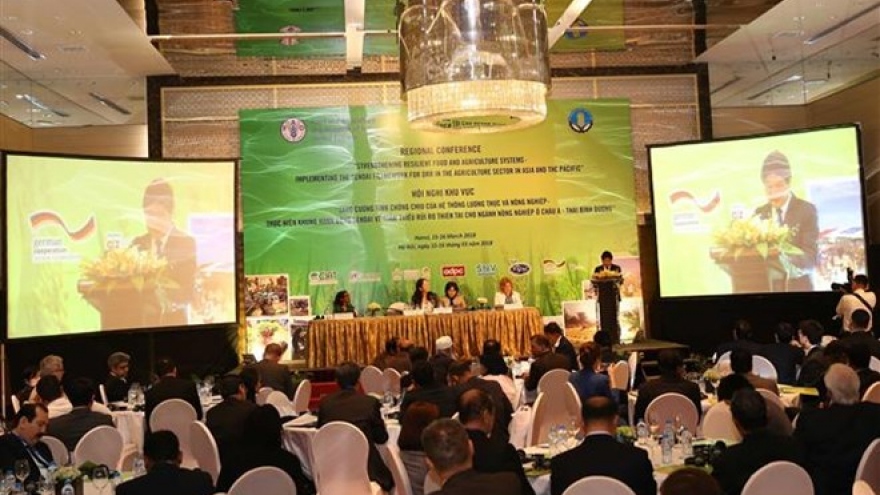Conference reviews climate change response support programme
A conference took place in Hanoi on April 13 to review the support programme in response to climate change.
 |
Speaking at the event, head of the Department of Climate Change Tang The Cuong said Vietnam has actively realised commitments mentioned at the 21st Conference of the Parties to the UN Framework Convention on Climate Change (COP-21).
He said Vietnam’s major policies in 2019, which should be added to a policy framework to submit to the Prime Minister in June 2018, will contribute to refining mechanisms towards the full implementation of the Paris Agreement to be valid in the country from 2021.
Deputy head of the Department of Climate Change Pham Van Tan said eight goals of the support programme in response to climate change include response to natural disasters, climate monitor, ensuring water and food security amidst climate change, response to rising seawater level and disaster risks in vulnerable areas, sustainable forest management and development, emission reduction, response capacity improvement, and diversifying financial resources and improving investment efficiency.
WB environment expert Stephen Ling lauded the Vietnamese government for basically achieving goals set in 2016 and 2017 and vowed to assist Vietnam in devising the policy framework in the near future.
Over the past decade, the programme has made great contributions to climate change response in Vietnam. Each year, development partners together with ministries and agencies meet to discuss framework policies approved by the Prime Minister and agreed on priority policies in the coming years.



